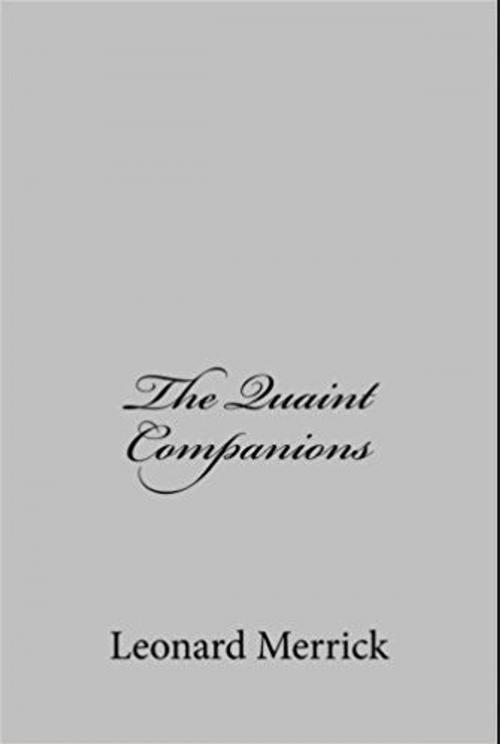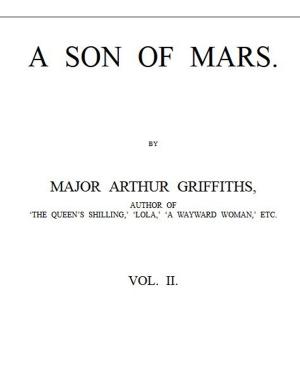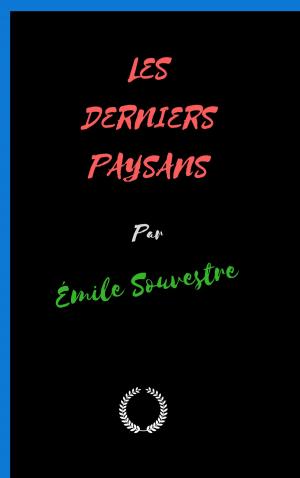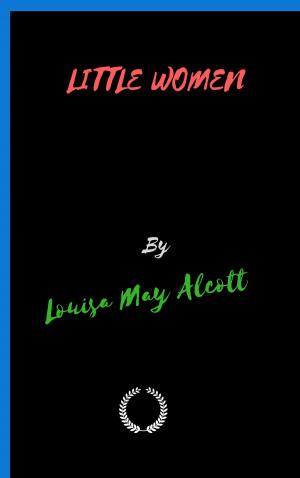| Author: | LEONARD MERRICK | ISBN: | 1230002327464 |
| Publisher: | Jwarlal | Publication: | May 18, 2018 |
| Imprint: | Language: | English |
| Author: | LEONARD MERRICK |
| ISBN: | 1230002327464 |
| Publisher: | Jwarlal |
| Publication: | May 18, 2018 |
| Imprint: | |
| Language: | English |
Lee had not returned from the concert alone. Gregarious at all times, he never found solitude so little to his taste as when he left the platform—when he was still excited by the fervour of his voice and the public's applause. Two of the other soloists had driven to the hotel with him, and he had taken them up to his sitting-room to give them champagne, and proffer fat cigars. Though his guests resented his prosperity too bitterly to need reminding of it, he had changed his dress-coat for a smoking-jacket of plum-coloured velvet and was complacently conscious, as he crossed his slippered feet on the window-sill, that neither of his fellow-artists would fail to notice that he wore silk socks.
There was a pause in the vociferous conversation. Somewhere in the distance a clock struck a quarter to one. Like his companions, he had arrived here only in time for his engagement, but unlike them, he was remaining a fortnight for his pleasure. His gaze wandered from their sprawling forms to the view outside. The night was fair, and behind the silent Parade the decorous sea of Brighton shimmered becomingly under a full moon. Fifteen years had slipped by since he was in Brighton last, and in his mind they were momentarily effaced. By a perfectly natural process there rose in the stillness beyond the uncurtained window the apparition of his First Love.
Neither of the other men in the room saw it. Indeed she lingered there only an instant—just for a heart-beat—though some enchantment played upon the scene after she had gone. Lee turned in his chair, and followed the girl into the past. In reality he was thirty-one; in fancy he was sixteen.
She had been beautiful. Even in retracing his youth by the light of experience, he would not wrong her by a lesser word. She was beautiful, and there was justification for his homage. But heavens! In retrospect he was humiliated to perceive his shyness; he beheld his blunders and his ignorance with dismay. How very young he had been at sixteen—how very young, to be sure!
The discovery caused him a distinct shock, for at the time he was convinced that he was exceedingly old for his age, and he had never been back till now to see if it was true. He recollected the evening when she first dazzled him; he had gone to the theatre here, and the overture was not more than half over when his sight was smitten by a girl sitting in the next row. She had the slightly disdainful air which becomes a girl to whom the gods have been bountiful, and whose dressmaker has done her duty. He watched her as man watches woman in the stage when he has yet to realise that she is mortal. She was with a lady whose features seemed familiar to him, and presently he remembered the lady's name. She was Mrs. Tremlett, and the girl could be no other than "Ownie"—"Ownie" who, when he stayed in their lodging-house a few summers since, had been in short frocks. Of a truth it was a very pretty incident, and the ordinary boy would have pronounced it "jolly luck"; but he—O lout! how stupid he had been, how self-conscious and impossible.
"You and Ownie must want to talk over old times?" A simple, kindly soul, the mother. He recalled her suggestion, and the divinity's involuntary glance at her white kid glove as he released her hand. The sentiment of the evening, his tremors and his painful struggle to think of something to say recurred to him, though fifteen years had gone by since the audience dispersed. As they streamed out, Ownie Tremlett had turned with a smile to look at herself in a mirror in the vestibule. That was vivid, the girl's movement, and the reflection of her figure with the flimsy white thing over her hair—quick with the warmth of yesterday.
Lee had not returned from the concert alone. Gregarious at all times, he never found solitude so little to his taste as when he left the platform—when he was still excited by the fervour of his voice and the public's applause. Two of the other soloists had driven to the hotel with him, and he had taken them up to his sitting-room to give them champagne, and proffer fat cigars. Though his guests resented his prosperity too bitterly to need reminding of it, he had changed his dress-coat for a smoking-jacket of plum-coloured velvet and was complacently conscious, as he crossed his slippered feet on the window-sill, that neither of his fellow-artists would fail to notice that he wore silk socks.
There was a pause in the vociferous conversation. Somewhere in the distance a clock struck a quarter to one. Like his companions, he had arrived here only in time for his engagement, but unlike them, he was remaining a fortnight for his pleasure. His gaze wandered from their sprawling forms to the view outside. The night was fair, and behind the silent Parade the decorous sea of Brighton shimmered becomingly under a full moon. Fifteen years had slipped by since he was in Brighton last, and in his mind they were momentarily effaced. By a perfectly natural process there rose in the stillness beyond the uncurtained window the apparition of his First Love.
Neither of the other men in the room saw it. Indeed she lingered there only an instant—just for a heart-beat—though some enchantment played upon the scene after she had gone. Lee turned in his chair, and followed the girl into the past. In reality he was thirty-one; in fancy he was sixteen.
She had been beautiful. Even in retracing his youth by the light of experience, he would not wrong her by a lesser word. She was beautiful, and there was justification for his homage. But heavens! In retrospect he was humiliated to perceive his shyness; he beheld his blunders and his ignorance with dismay. How very young he had been at sixteen—how very young, to be sure!
The discovery caused him a distinct shock, for at the time he was convinced that he was exceedingly old for his age, and he had never been back till now to see if it was true. He recollected the evening when she first dazzled him; he had gone to the theatre here, and the overture was not more than half over when his sight was smitten by a girl sitting in the next row. She had the slightly disdainful air which becomes a girl to whom the gods have been bountiful, and whose dressmaker has done her duty. He watched her as man watches woman in the stage when he has yet to realise that she is mortal. She was with a lady whose features seemed familiar to him, and presently he remembered the lady's name. She was Mrs. Tremlett, and the girl could be no other than "Ownie"—"Ownie" who, when he stayed in their lodging-house a few summers since, had been in short frocks. Of a truth it was a very pretty incident, and the ordinary boy would have pronounced it "jolly luck"; but he—O lout! how stupid he had been, how self-conscious and impossible.
"You and Ownie must want to talk over old times?" A simple, kindly soul, the mother. He recalled her suggestion, and the divinity's involuntary glance at her white kid glove as he released her hand. The sentiment of the evening, his tremors and his painful struggle to think of something to say recurred to him, though fifteen years had gone by since the audience dispersed. As they streamed out, Ownie Tremlett had turned with a smile to look at herself in a mirror in the vestibule. That was vivid, the girl's movement, and the reflection of her figure with the flimsy white thing over her hair—quick with the warmth of yesterday.















